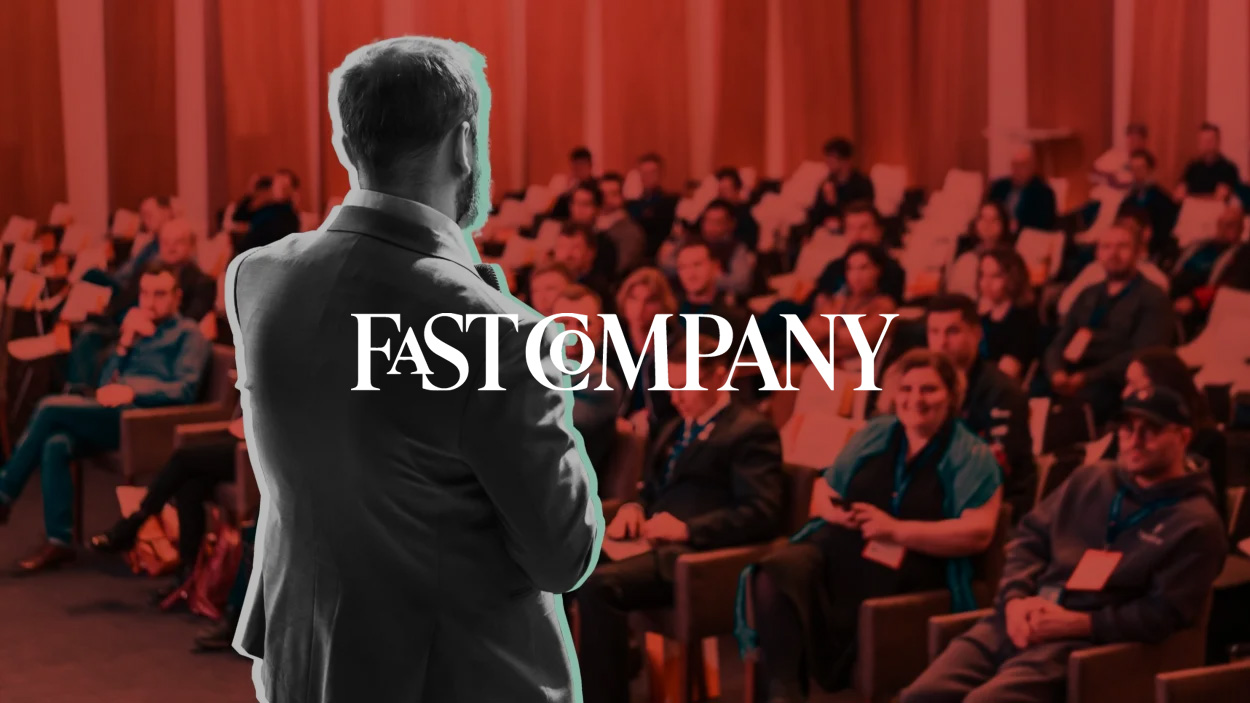This post originally appeared in Fast Company.
It would be impractical—not to mention impossible—for a brand to comment on every political issue. The tricky part is deciding on which issues brands should take a stand.
To speak up or stay quiet? That’s the question brands and their CEOs often ask themselves in response to the various political and social crises that occur seemingly daily.
As someone who’s consulted, partnered, and led brands for the last 15+ years, I anticipated big and bold public statements, radical social media campaigns, and provocative press releases in the days and weeks following the Supreme Court decision to overturn Roe v. Wade. But to my surprise, besides a handful of powerful messages from brands in the tech sector, all we got were essentially internal memos.
That’s when I came across this headline in Forbes: “Less than 10% of Companies Commented Publicly on Roe V. Wade Decision, Poll Finds.”
I saw this as a plea for help. Simply put, not enough brands have a reliable framework to refer to when deciding whether or not to speak out against social issues.
It would be impractical—not to mention impossible—for a brand to comment on every political issue. The tricky part is deciding on which issues brands should take a stand. This is where a reliable and foundational framework, like DoorDash’s Compass comes in handy.
THE DOORDASH COMPASS
At the 2022 Gathering marketing conference, CMO Kofi Amoo-Gottfried presented the DoorDash Compass, an organizing principle and framework designed to guide the business on when and how to respond to external events. At the center of its mission is to “help local communities and promote progress and fairness while protecting against bias and exclusion.”
DoorDash uses its system to evaluate how social issues stack up against its core mission and fundamental values. For example, in 2020, DoorDash decided not to get involved with the 2020 Facebook ad boycott when civil rights groups protested how the platform handled hate speech and misinformation. But when it comes to issues such as Black Lives Matter, immigration, and LGBTQ+, DoorDash is very vocal about its support.
CONSUMERS ARE MORE INTERESTED THAN EVER IN BRANDS’ VALUES
According to a 2022 New Harris Poll commissioned by Google Cloud, “82% of shoppers prefer a consumer brand’s values to align with their own,” while three-quarters reported parting ways with a brand over a conflict in values. When we pair these findings with the 2022 Edelman Trust Barometer’s discovery that consumers trust brands more than governments, the writing’s on the wall: consumers want brands to speak out against issues that matter to them.
So, here are three questions and accompanying case studies to help your brand develop its compass when deciding whether or not to speak up against social issues.
QUESTION #1: DOES THIS ISSUE THREATEN OR IMPACT YOUR BRAND’S CORE VALUES?
If an issue directly threatens your brand’s mission statement, speaking out is not a formality. It’s an obligation.
Take Tony Xu, DoorDash’s CEO and co-founder, who issued a statement in the wake of the murder of George Floyd in 2020 in which he pledged $1,000,000 to Black Lives Matter and the Black@DoorDash Employee Resource Group. In his statement, Xu said these events directly violated the brand’s core mission and values to empower a more diverse and inclusive community, which is why the delivery company chose to respond.
If you have to ask whether an issue threatens your core values, I suggest you revisit your brand’s mission statement. Your values should be front and center for your team and your customers, period.
QUESTION #2: DOES THE ISSUE DIRECTLY IMPACT OUR BUSINESS, MISSION, OR COMMUNITY?
Suppose an issue directly impacts your business, mission, or community. In that case, you must be ready to speak out, like in 2017 when AirBnb spoke out against former President Trump’s executive order to close America’s borders to seven predominantly Muslim countries. The hotel alternative not only provided free lodging to refugees affected by Trump’s actions, but they took their opposition to the country’s biggest stage—the Super Bowl—with an ad that said, “We believe no matter who you are, where you’re from, who you love, or who you worship, we all belong. The world is more beautiful the more you accept.”
In an interview with Fortune, AirBnb’s CEO spoke out against the brand’s strong opposition, citing that the executive order was a “complete violation of all the values that we believe.”
If an issue directly impacts the livelihood of your customers, then be prepared to speak up—even if it means taking a political stand. Stay quiet, and you risk losing customers to a brand that’s brave enough to be vocal. After all, pressure makes diamonds—and lifelong loyal customers.
QUESTION #3: HOW CAN WE MAKE AN IMPACT THROUGH OUR CORE BUSINESS PRACTICES?
There’s no point speaking out if your business practices don’t measure up. Ben & Jerry’s is no stranger to being vocal about the issues that matter to them, especially climate change. Everythingfrom sourcing to ingredients to distribution is designed to keep the Earth’s temperature down.
When it comes to speaking up against social issues, talk is cheap. Drafting a statement and posting it on social media is, at this point, standard practice. What separates a good brand from an exceptional one is translating all that talk into tangible business practices. Fail to do so and your customers will not hesitate to take to a brand that’s willing to put their money where their mouth is.
HOW TO CREATE YOUR OWN BRAND COMPASS
To create your own brand compass, start by gathering your team. You will be tempted to read the company’s mission statement word for word, but don’t. Ask the room. It doesn’t need to be verbatim, but can they vocalize the general idea and list your core values?
Next, look at the room. Are your core values reflected in the very people looking back at you? If your core mission boasts diversity and accessibility, is your team a true and honest reflection of that?
Look at today’s date and compare it to the day you sat down to write this mission statement in the first place. It could have been five or 50 years ago. Ask yourself: Is your statement still relevant? Does it hold up in our ever-evolving world? If not, what needs to change Crafting or updating a mission statement shouldn’t be an individual activity. It’s a team effort.
Finally, don’t wait for the next social issue to make a splash across Twitter because then you’re reacting, not responding.
It’s important to give yourself and your brand permission to evolve with the ebbs and flows of society and culture. After all, the brands that are here to stay are the ones that are committed to evolving with the world around them.



